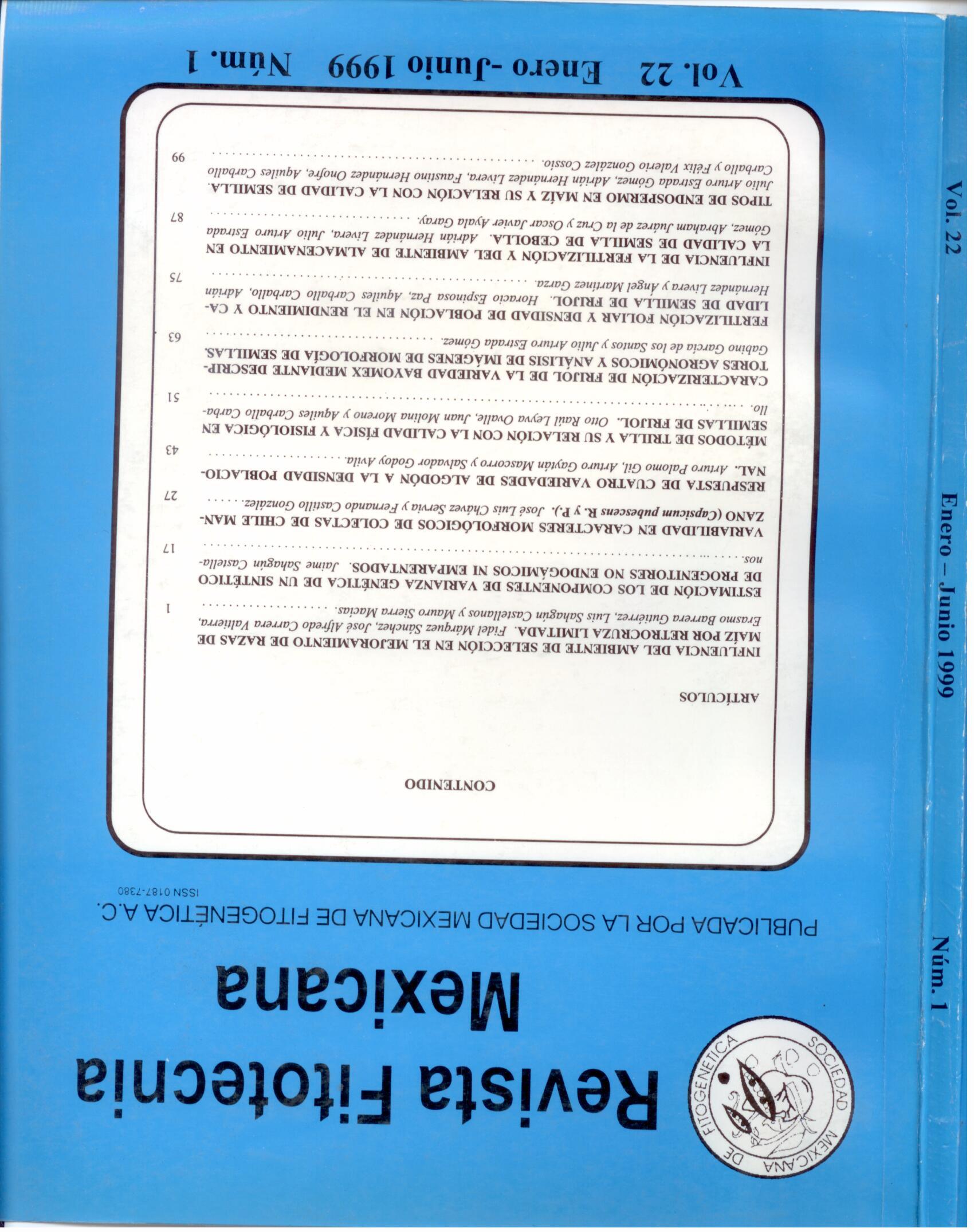MAIZE ENDOSPERM TYPES AND SEED QUALITY RELATIONSHIP
Main Article Content
Abstract
Using two maize (Zea mays L.) second generation inbred lines, one with dent endosperm type (conic) and the other of floury type (cacahuacintle), a study was carried out during 1996 at Montecillo, México to determine the effect of the single cross genotypes in phenotypic expression and seed quality (F1). Reciprocal and direct crosses were done controlling pollination in both lines. Tests of physiological and physical quality were conducted. Results obtained brought us to the following conclusions: Parental lines with different type of endosperm confer a maternal effect to their crosses in relation to structural and phenotypic seed characteristics. Crosses improved the physiological seed quality and showed higher hybrid vigor to the parental lines due to an heterotic effect. The performance of a line with dent endosperm type (conic) or floury type (cacahuacintle), varied as was used as female or male progenitor for seed production. Line with dent endosperm type and its direct cross (Ll X L2) had better seedling growth at suboptimum temperature (15oC).

